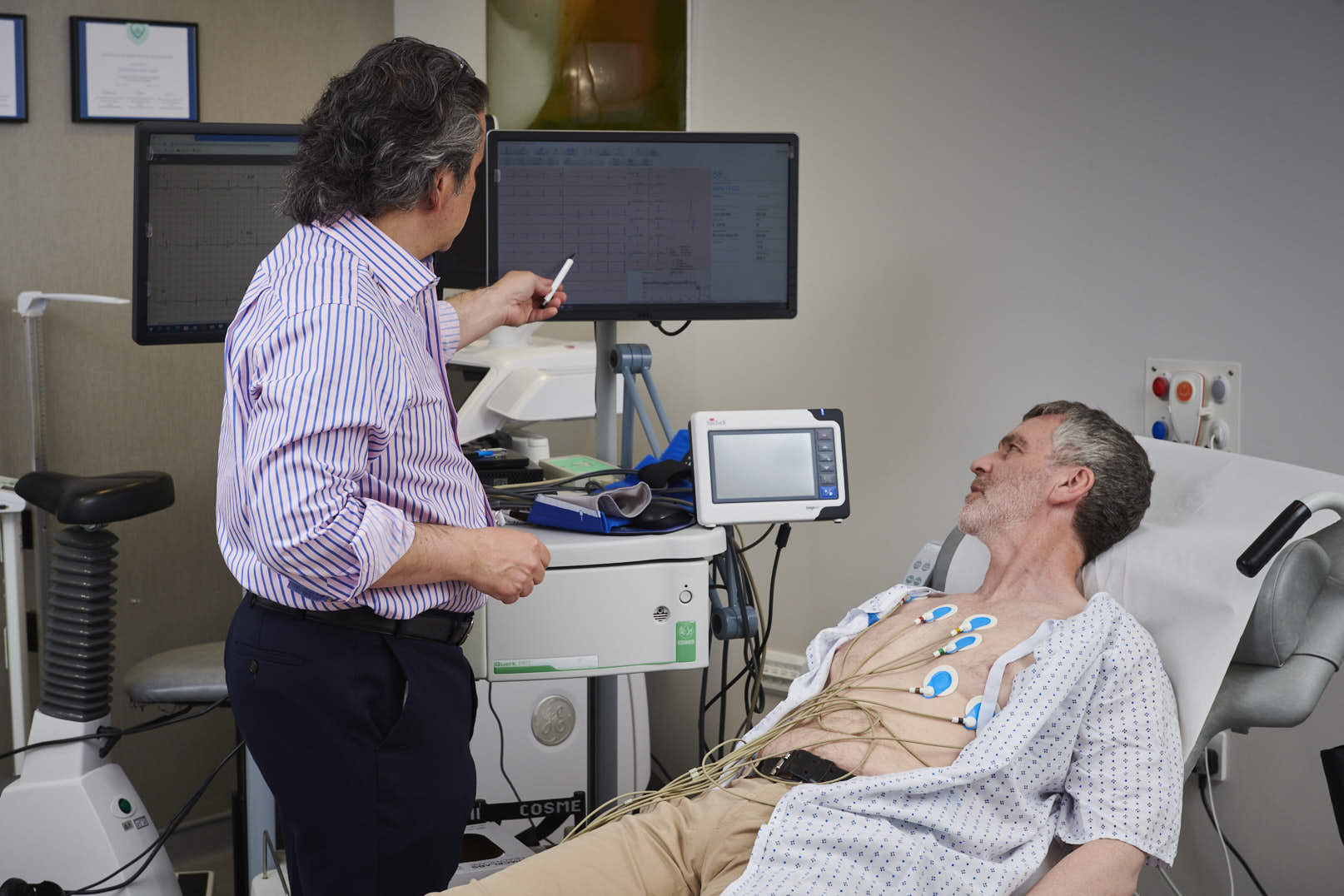This service or treatment is generally covered by most health insurance policies. You are responsible for checking your insurance policy cover, and you may need a referral letter. Check which insurance companies are covered.
An ECG is a simple test to check your hearts rhythm and electrical activity.
Sensors are attached to the skin and used to detect the electrical signals produced by each heartbeat.
Signals are recorded by a machine and looked at by a consultant cardiologist to see if they are unusual.
It is important to note that an electrocardiogram IS NOT the same as an echocardiogram which is an ultrasound scan used to look at the heart.







